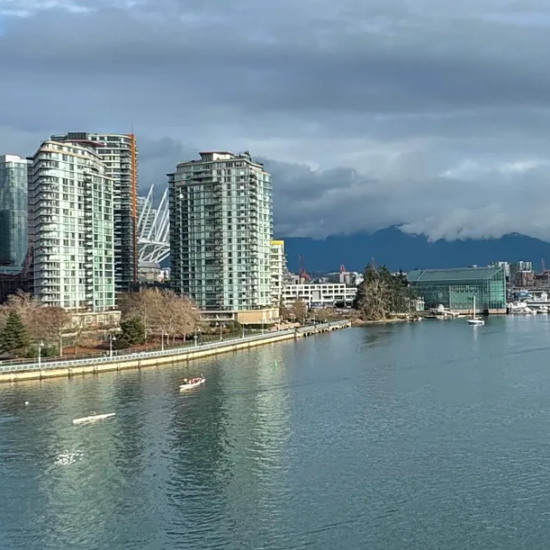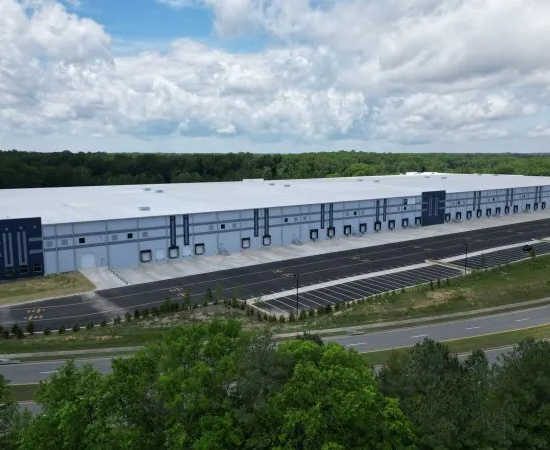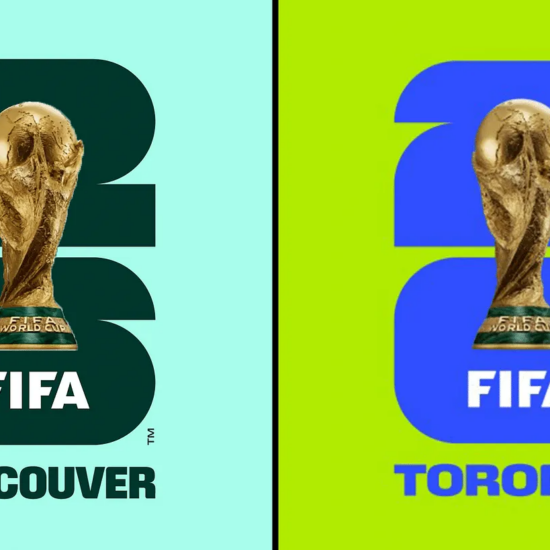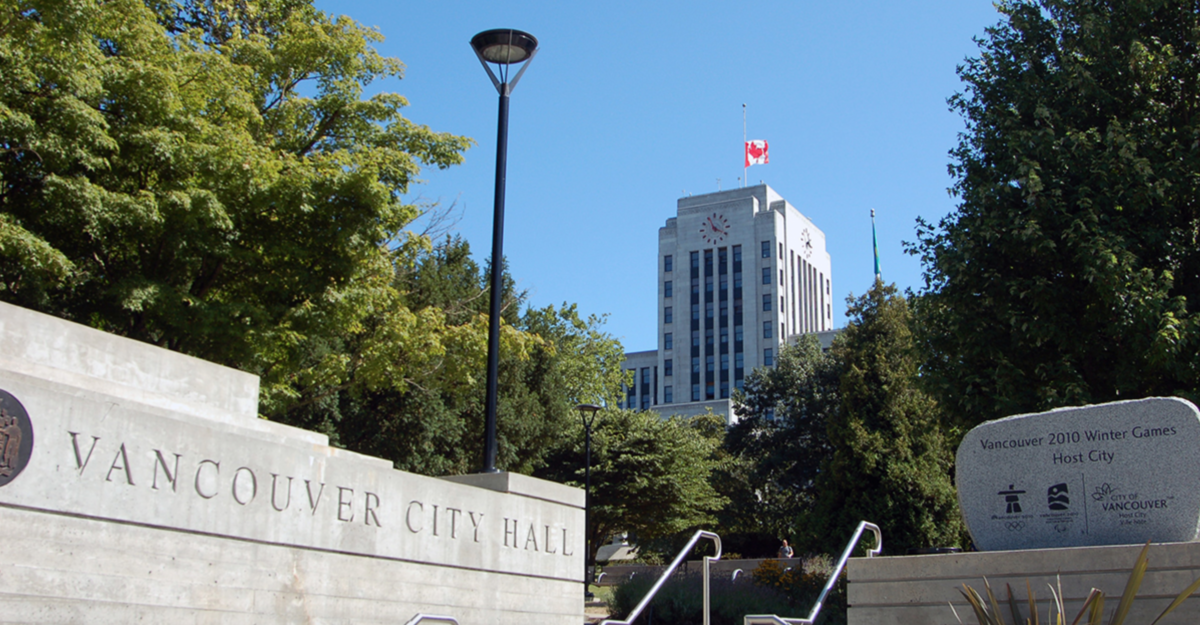
Bob Mackin
Toronto-headquartered Mainstreet Research, which is still recovering from its Calgary election debacle last fall, is gathering data about the Oct. 20 Vancouver election for what it called “Discussions Canada.”
The client was not revealed on the eight-minute automated poll on Sept. 5, which was notable for what was included and what was omitted. Listen to the recording below.
The company led-off with questions about federal and B.C. party and leader voting preferences, then got down to business, asking about the most important issue in the civic election. Choices were, in order of appearance: housing crisis, Kinder Morgan pipeline expansion, provincial housing speculation tax, downtown revitalization, property taxes, traffic congestion, safe streets, bicycle lanes, homelessness or another issue.
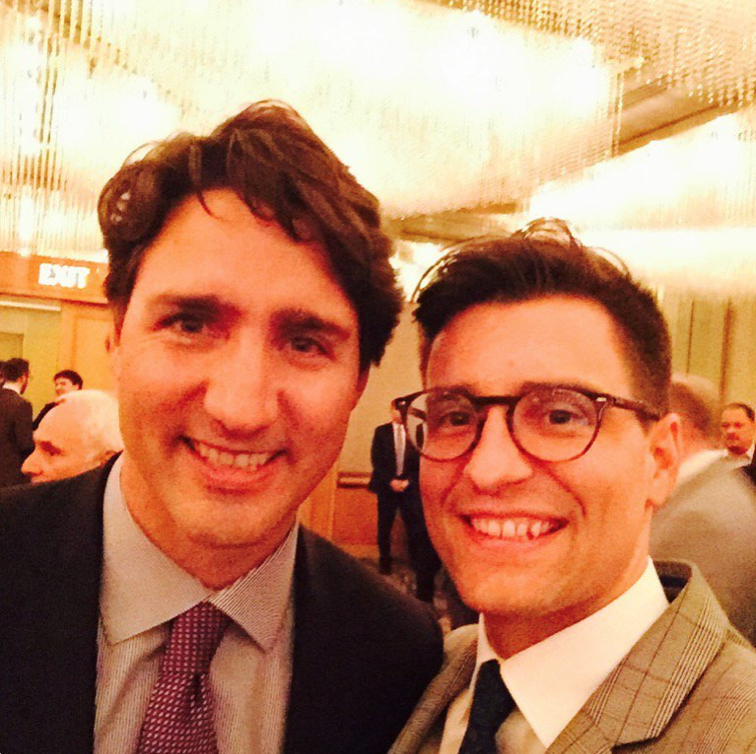
A Mainstreet Research poll asks about support for Justin Trudeau and Hector Bremner. (Twitter)
Choices for mayoral candidates were listed in alphabetical order (Hector Bremner, Ian Campbell, David Chen, Ken Sim, Kennedy Stewart, Shauna Sylvester, Wai Young), with a twist at the end. Instead of Fred Harding of Vancouver 1st, Maya Richards was named.
Then there were questions about voting for Bremner versus Sim and Sim versus Stewart. The obligatory support or oppose the Kinder Morgan TransMountain pipeline expansion question was followed with whether the city has a role in stopping it.
Back to the big issue, housing, and whether to support or oppose the following: modular housing for the homeless; provincial government speculation tax; empty homes tax; building more housing to lower housing prices; and the “final issue,” a 50% speculation tax on homes sold unimproved within two years.
The latter is one of the first planks of Bremner’s campaign, revealed Sept. 4 on the Yes party’s Facebook page under the heading: “Made-in-Vancouver Speculation Tax.”
“Yes Vancouver will begin to work with the province to introduce a true speculation tax for the city of Vancouver, taxing 50% of profits on the sale of unimproved residential housing, within 24 months of gaining ownership, including pre-sale assignments prior to ownership,” Bremner wrote.
Then, another question in Bremner’s ballpark: “Do you agree or disagree the mayor must have city hall experience?”
Bremner took advantage of low voter turnout and a left-wing split to win a seat on city council in a by-election last October. Nobody else has Vancouver city hall experience. Only Stewart and Young have been elected to public office, but as Members of Parliament.
Hot-button housing questions about banning foreign buyers or taxing them and charging them more, and preference for planning and zoning options, including whether to allow duplexes and townhomes in all neighbourhoods; 40 storey high-rise buildings downtown, 10-storey buildings near downtown, four-storey buildings in an outer ring and leave 10% single family remaining; or reduce density.
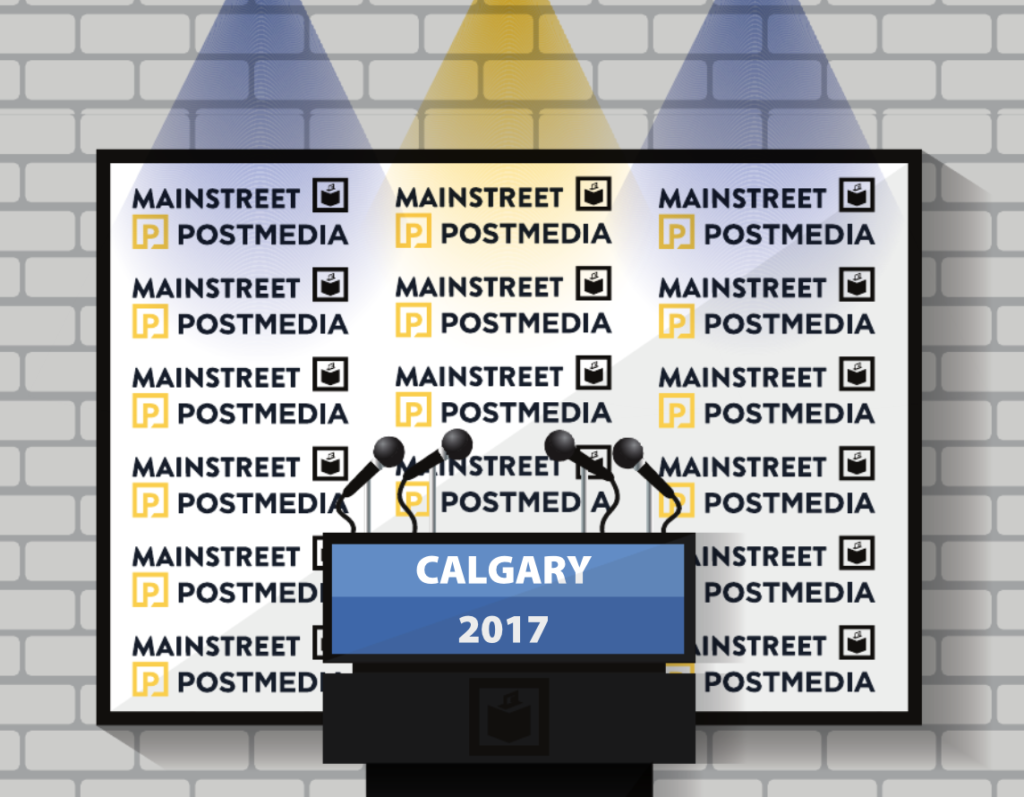
Mainstreet blew its predictions for the Calgary 2017 election.
Finally, the listener was asked whether he or she supports or leans towards, in order of appearance: Yes, Vision, NPA, Greens, Pro Vancouver, Vancouver 1st, Coalition Vancouver or undecided. Oddly, neither the left-wing COPE nor OneCity were included in the list.
And, the kicker, “How would you rate the performance of Gregor Robertson as mayor over the last term?”
Mainstreet conducted three polls for Postmedia, the Calgary Sun and Calgary Herald publisher, in 2017 that incorrectly predicted Bill Smith would defeat two-term incumbent Mayor Naheed Nenshi.
Last December, Mainstreet said it conducted an internal investigation that concluded the errors were neither intentional nor malicious. It missed contacting young voters “because they were harder to reach.”
The review also found shortcomings in robocall polling, known technically as interactive voice response.
“Although Mainstreet still believes it is viable with some adjustments detailed in [the internal review] report, declining response rates and a growing youth demographic that are harder to reach, mean that IVR is not the future of polling,” said a letter on the Mainstreet website from president Quito Maggi. “In addition to implementing the short-term recommendations of the report, Mainstreet is actively working on next-generation polling technology and continuing to strive to improve in every way.”
Listen to the Mainstreet Research Vancouver civic election robocall below.
Support theBreaker.news for as low as $2 a month on Patreon. Find out how. Click here.







